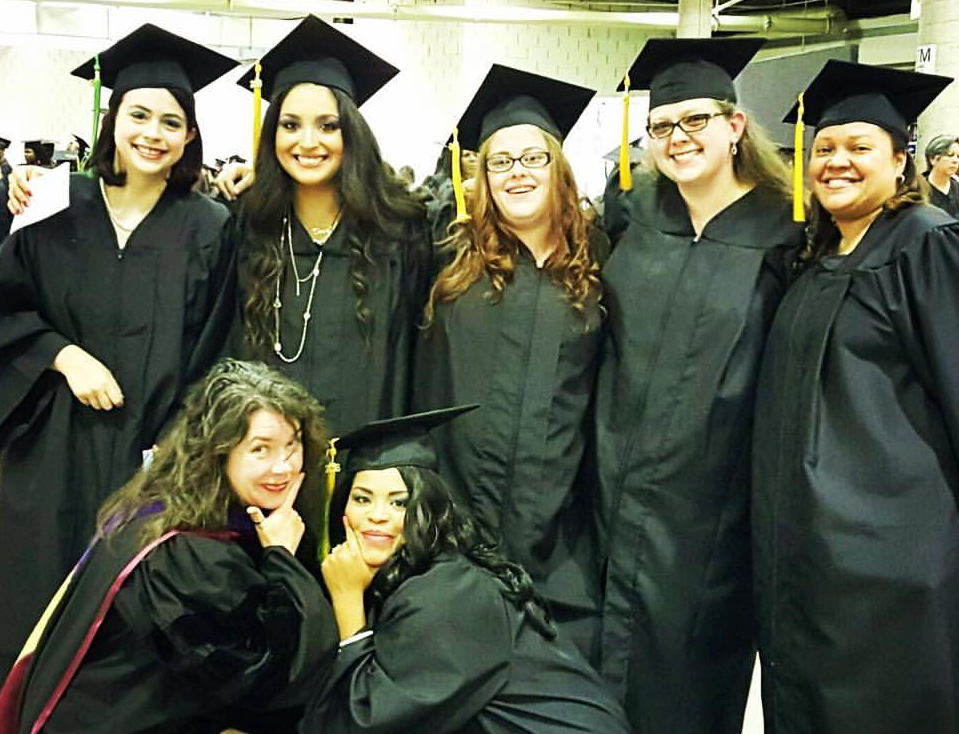Anderson Selected to Judge National Moot Court Competition

Associate Professor Amy Anderson (bottom left) is flanked by Legal Studies graduates in Thomas Nelson's class of 2016.
Thomas Nelson's Amy Anderson was selected to judge the 2020 regionals of the American Bar Association's Law Student Division National Appellate Advocacy Competition (NAAC). Taking place in Washington, D.C., NAAC is among the nation's most prestigious moot court competitions.
Judges will interact with the finest advocates from law schools across the country while sitting as the U.S. Supreme Court to hear oral arguments presented by two-person teams. Anderson, an associate professor at the College, will serve Feb. 28-29 judging rounds two and three.
The NAAC emphasizes developing oral advocacy skills through a realistic appellate advocacy experience, Anderson explained. Moot court competitors participate in a hypothetical appeal to the U.S. Supreme Court which involves writing an appellate brief as either respondent or petitioner and then arguing the case before the mock court.
"Though my favorite black robe is the one I wear at commencement to cheer on my graduating students," said Anderson, "I'm excited to have the opportunity to put on a justice's robes and participate in this prestigious event in our nation's capitol."
Chair of Thomas Nelson's Legal Studies department, Anderson has taught law for the Paralegal AAS degree and Legal Assistant certificate programs since 2007. She is licensed in Oregon and has practiced law in California and Maryland, and specialized in U.S. Immigration and Naturalization Law, before settling in Virginia.
While she regularly appeared before administrative courts and agencies in asylum, citizenship, religious, employment- and family-based immigration matters for clients from around the country and the globe, Anderson favors her appellate work.
"Weaving together clients' stories with legal arguments in the pages of often-voluminous appellate briefs was always an opportunity to bring research and writing together in a way that could result in both affording immigrants and their families safety and a new start in life, as well as potentially influencing law and policy," said Anderson.
"Like any immigration attorney, my win-rate wasn't great on the hearing level, but when it came to appellate cases, I had a 100% success rate. I'm looking forward to interacting with law students who also want to shine in this area of legal practice, and to sharing the experience with my own students at Thomas Nelson."
